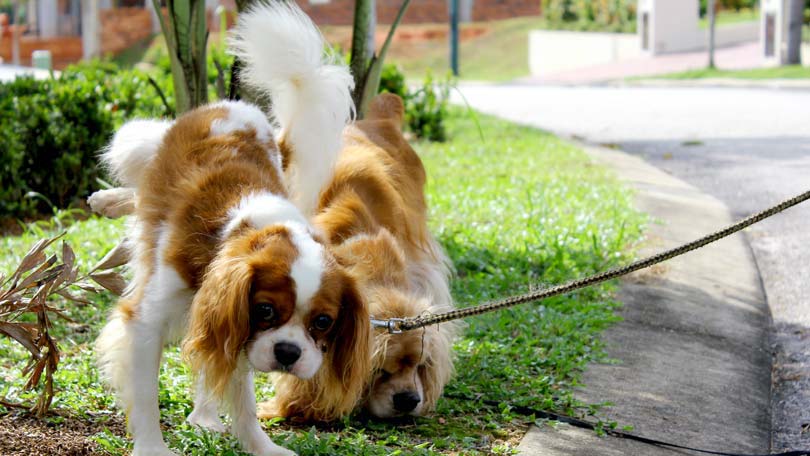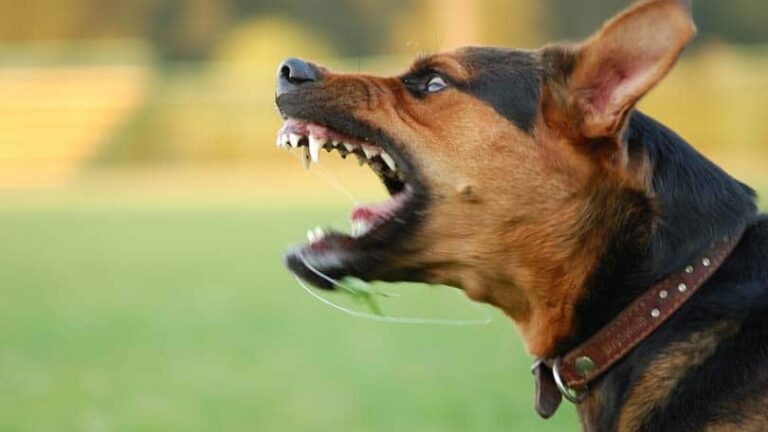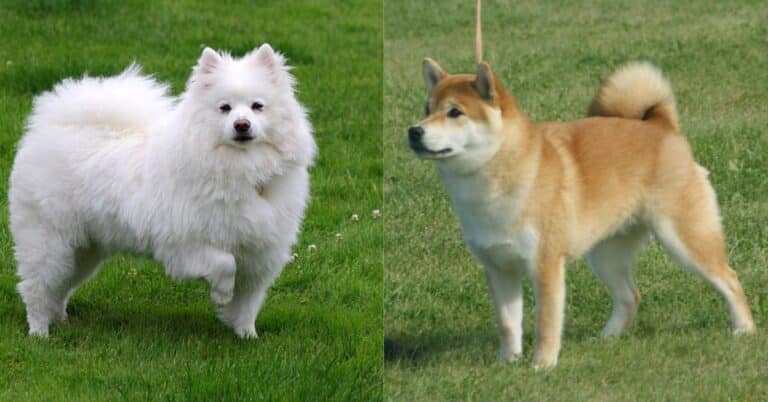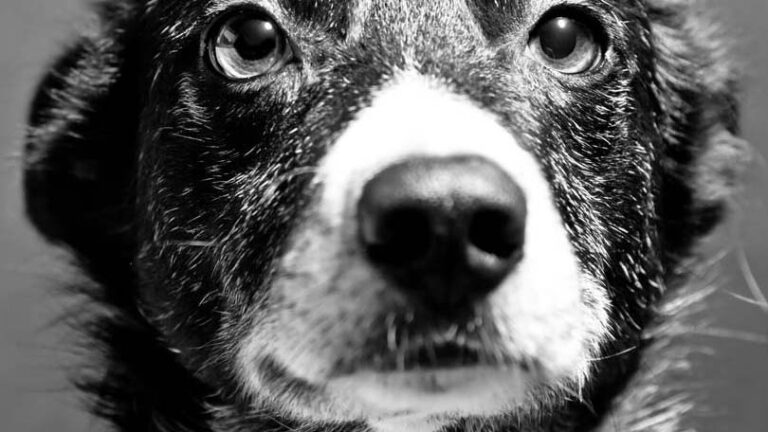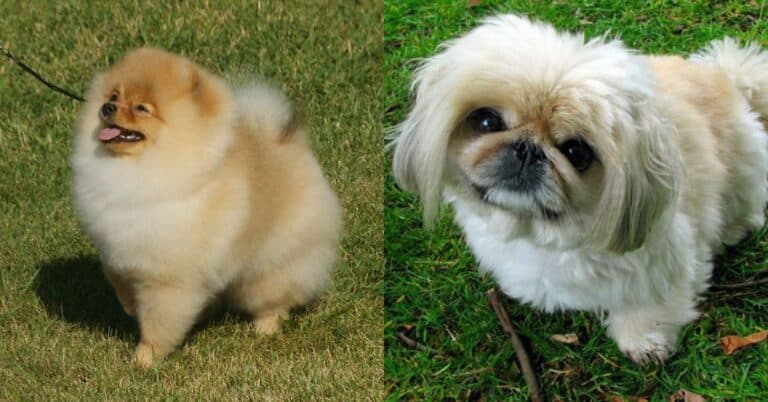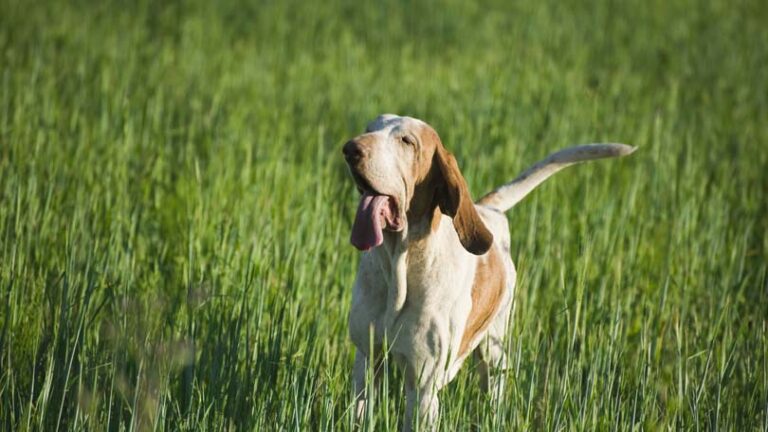Why do Dogs Eat Grass?
Why do dogs do it? What is the attraction to grass? How can it taste so good to them that, whenever they go outside, they chow into it as if they have not seen food in a week? Why do dogs eat grass?
There are several reasons although none are confirmed as a fact – it could be that dogs just like eating grass! However, it is more likely that there is a reason why a dog eats grass based on a physiological need versus the taste, texture, or overall enjoyment of the rather stringy process.
The Simple Answer to Why Dogs Eat Grass
One of the main reasons dogs eat grass is to induce vomiting . Many dogs develop an increase in bile acid or digestive ‘juices’ when their stomachs are empty. This acid causes a feeling of nausea but does not actually make them vomit. Eating grass increases the nausea and up comes the yellow bile acid along with the clump of partially chewed green grass.
To prevent this from happening, increase the frequency of meals so that your dog’s stomach does not get that empty, hollow feeling. Sometimes the food itself can be the culprit of the acid build up in their stomach and a change of diet can help alleviate some of these symptoms.
Another Reason Why Dogs Eat Grass
Within a healthy mammalian digestive tract, there are both good and bad bacteria. These two types of bacteria are necessary for a healthy digestive system and most mild digestive upset is caused from an imbalance within their numbers.
Probiotics help regulate the digestive system, preventing gas, diarrhea , constipation, and nausea. Most humans eat yogurt to add probiotics to their diet and will often add it to their dog’s diet. However, most dogs are lactose intolerant meaning the probiotics produce more digestive issues then they solve. Instead, they go straight for the grass.
At the root of each blade of grass lie soil-based probiotics (SBOs). SBOs are where the probiotics within yogurt originally come from – grass has probiotics, cows eat probiotics, we milk cows and make yogurt out of the milk. Dogs take out the middleman and go straight for the grass.
Canines, both dogs and wolves, are omnivores meaning they eat everything, unlike cats that are almost strictly carnivores. When a wolf makes a kill, the first part of the animal they eat is the viscera including the stomach contents. Since most of the animals they kill are herbivores, the stomach contents are made up almost entirely of grass and leaves as well as soil-based probiotics and digestive enzymes. Because the wolves diet is supplemented with partially digested grass, they do not need to eat grass or ‘graze’ and rarely suffer from any digestive issues.
How to Stop Your Dog from Eating Grass
Stopping your dog from eating grass can be difficult as it is a natural thing for them to do. Many dogs do both types of grass eating – the frantic gobbling of grass to induce vomiting as well as the ‘grazing’ in an attempt to add what is missing to their diet.
As mentioned above, changing your dog’s feeding schedule and diet can be the answer to solving the build up of bile acid in their gut. Most dogs are fed twice a day and the twelve-hour break between meals leaves their stomach empty for a long period of time. Changing their schedule to three meals a day, spaced eight hours apart can help keep their bellies from emptying out completely.
Their diet can be a big part of their problem as well. Many dog foods contain fillers to help bulk up the food. These fillers have poor nutritional content and can cause the liver to produce too much bile in order to help digest the lousy ingredients. Picture how you feel after a junk food feast – reaching for the Tums? Dogs reach for grass instead.
Ask your veterinarian what food you should be feeding your dog and make sure that fillers are kept to a minimum in their food and treats.
Adding soil-based probiotics will help the ‘grazer’ stop devouring your lawn. These important nutrients also solve many other digestive concerns, even lessening typical canine flatulence. As an added bonus, if your dog happens to eat something rotten or is exposed to the canine version of Montezuma’s Revenge, the impact on their digestive system should be less then that of a dog not on soil-based probiotics.
Eating grass is normal for dogs but it does not mean you need to live with the frustrating habit. There are alternatives out there to grazing – talk to your veterinarian, look into changing your dog’s routine and add probiotics to their diet.

Having discovered a fondness for insects while pursuing her degree in Biology, Randi Jones was quite bugged to know that people usually dismissed these little creatures as “creepy-crawlies”.

